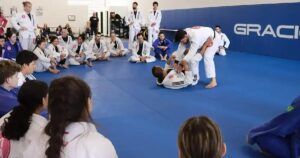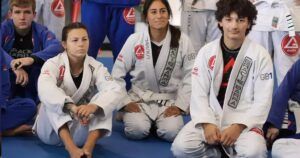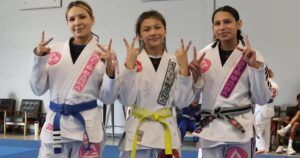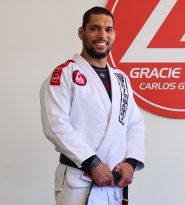This is the fourth article in the series BJJ Ultimate Guide: A Beginner’s Roadmap to Brazilian Jiu-Jitsu. Click to check other articles of this series.
Teaching Method and Training Behavior for BJJ classes
Having a method in place to avoid injuries is essential in BJJ classes, but equally important is maintaining the right behavior during training. A structured approach to training involves consistent warm-ups, proper technique execution, and a clear understanding of safe practice protocols. Controlled movements and adherence to the correct form are crucial for reducing the risk of injuries. Besides, fostering a respectful attitude towards training partners ensures a safe environment for everyone.
Communication during BJJ classes is key—let your partners know your limits and listen to theirs. Always prioritize safety over competitiveness, and don’t hesitate to tap out if you’re in a compromising position. This approach helps create a positive training atmosphere where everyone can learn and grow without unnecessary risks. Implementing a methodical training regimen not only enhances performance but also builds a foundation for injury-free practice.
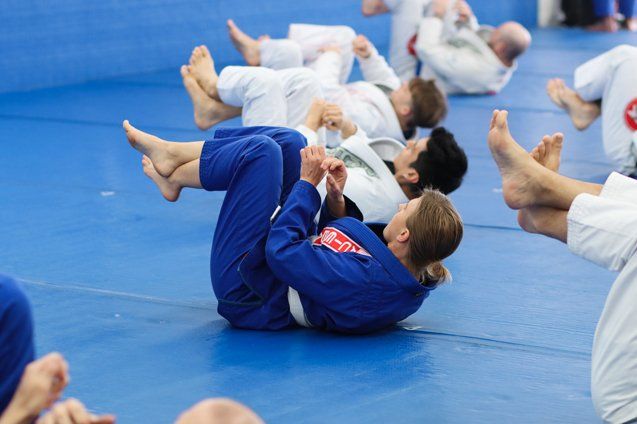
The Importance of Proper Warm-Up and Supplementary Exercises
Proper warm-ups and supplementary exercises are critical components of injury prevention during BJJ classes. A thorough warm-up increases blood flow, loosens muscles, and prepares your body for the physical demands of training.
Incorporating additional exercises, such as weight lifting and stretching, further enhances your resilience against injuries. Weightlifting builds strength and stability, supporting your joints and muscles, while regular stretching improves flexibility and range of motion. By integrating these practices into your routine, you bolster your overall physical condition, making you less prone to injuries during intense training sessions. These preparatory steps are not just beneficial for injury prevention but also for improving overall performance and endurance on the mats.
Training with Injuries
Training with injuries requires careful adaptation and a smart approach. While some injuries may necessitate complete rest and time off the mats, many others can be managed with modifications. Instead of stopping entirely, you can adapt your training by focusing on techniques that don’t exacerbate your injury, substituting sparring with drilling or working on different aspects of your game.
Training through certain injuries can even lead to new skill development, such as improving the non-dominant side of a move. By listening to your body and adjusting your training accordingly, you can continue to progress in Jiu Jitsu while minimizing the risk of further harm. This adaptability ensures that injuries become opportunities for growth rather than setbacks.
The Importance of Tapping Out in BJJ Classes
Tapping out is an essential aspect of Brazilian Jiu-Jitsu that ensures safety and longevity in the sport. It serves as an immediate signal to your training partner that you are in a compromised position and need to stop. Recognizing when to tap out demonstrates self-awareness and respect for your body, preventing unnecessary injuries. It’s important to remember that tapping out is not a sign of defeat but a crucial part of the learning process. Each tap provides valuable feedback, helping you understand where you need to improve and allowing you to train smarter. Embracing this practice fosters a safe training environment and promotes continuous growth in your BJJ classes.
How to diet for BJJ classes?
Dieting is a crucial aspect of training for Brazilian Jiu-Jitsu practitioners. A clean, balanced diet can significantly enhance your performance and overall well-being. Start by focusing on eating whole, unprocessed foods. This means plenty of lean proteins, whole grains, fruits, and vegetables. Avoid processed foods and sugary snacks, as well as excessive alcohol consumption, as these can hinder your progress and recovery.
One of the key aspects of dieting for BJJ classes is ensuring you don’t cut weight too quickly or unnecessarily. As a beginner, it’s important not to focus on cutting weight to compete. Rapid weight loss can lead to decreased performance and increased risk of injury. Instead, aim to consume the proper amount of daily calories to support your training. If you’re trying to lose weight, do so gradually by consuming just slightly fewer calories than you burn each day.
Supplements can also play a beneficial role in your diet. Multivitamins help fill any nutritional gaps, ensuring your body gets all the essential nutrients it needs. Protein supplements can aid in muscle recovery and growth, particularly important after intense training sessions. Creatine is another effective supplement that can help improve your strength and endurance, allowing you to train harder and recover faster.
Consistency is key when it comes to dieting. A consistent, well-balanced diet will yield the best results over time. The Gracie family, pioneers of Brazilian Jiu Jitsu, always emphasized the importance of a proper diet. They were known for combining foods correctly to optimize digestion and nutrient absorption, and they always included plenty of fruits and vegetables in their meals. This approach not only supported their training in Jiu Jitsu but also their overall health.
Incorporating these dietary principles into your routine will help you maximize your training potential, recover more efficiently, and maintain your health as you progress in BJJ classes. By taking your diet seriously, just as you do your training, you’ll be setting yourself up for success on and off the mats.
Lastly, it’s always a good idea to seek professional help from a nutritionist. A nutritionist can provide personalized advice tailored to your specific needs and goals, ensuring you get the most out of your diet and training regimen.
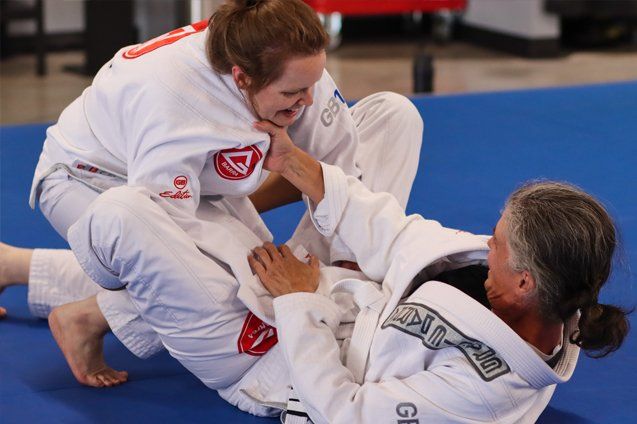
Building a Trusting Relationship with Your BJJ Coaches
Your coaches are not just instructors; they are your mentors, guiding you through your Brazilian Jiu-Jitsu (BJJ) journey. Establishing a strong, trusting relationship with them is crucial for your development and success in the sport. Trust that your coaches have your best interests at heart. They share the same goals as you: to see you improve, grow, and succeed. Every decision they make, from training routines to technique adjustments, is designed to enhance your skills and ensure your safety.
Show respect to your coaches by being attentive and engaged during classes. Listen carefully to their instructions and be open to their feedback. Constructive criticism is a valuable tool for growth, and embracing it will help you refine your techniques and strategies. Don’t hesitate to communicate openly with your coaches. Whether you have questions about a technique, need clarification on a concept, or seek advice on your progress, maintaining open lines of communication is essential in your BJJ classes.
A good relationship with your coaches can significantly enhance your learning experience. When your coaches know you well, they can provide tailored advice and support that addresses your specific needs and challenges. This personalized approach can accelerate your progress and help you overcome obstacles more effectively.
Take advantage of opportunities to learn directly from your coaches by attending seminars and workshops they conduct. These events are invaluable for gaining deeper insights into advanced techniques and concepts. During these sessions, you can ask questions, receive hands-on guidance, and observe high-level demonstrations. The knowledge and experience your coaches share in these settings can profoundly impact your understanding and execution of BJJ.
Building a trusting relationship with your coaches requires time, effort, and mutual respect during your BJJ classes. By showing your commitment, being receptive to their guidance, and believing in their decisions, you create a supportive and productive training environment. This strong bond with your coaches will not only enhance your BJJ skills but also enrich your overall experience in the sport, fostering a sense of community and belonging.
Relaxing and Recovery – Off Mats Time is Important Too
Balancing the intensity of BJJ training with adequate rest and recovery is essential for long-term success and well-being. Off-mat time is just as important as the hours you spend training. Incorporate relaxation techniques such as deep breathing, meditation, or yoga into your routine to help manage stress and maintain mental clarity. Prioritize getting plenty of sleep each night, as this is when your body repairs itself and builds strength.
Post-training recovery should also include physical activities that aid in muscle relaxation and circulation. Stretching and foam rolling can help reduce muscle soreness and improve flexibility. Light swimming is another excellent option, providing gentle movement that promotes blood flow without putting additional strain on your muscles. By integrating these recovery practices, you’ll enhance your body’s ability to heal and grow stronger, ensuring you stay healthy and ready for your next BJJ classes.
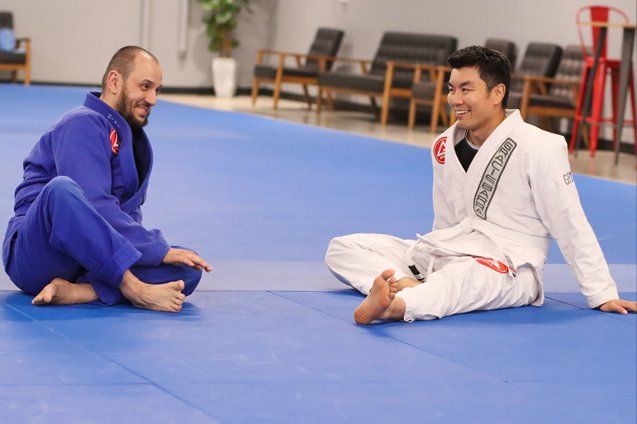
Studying BJJ Beyond the Gym
Expanding your knowledge beyond BJJ classes is crucial for developing your skills. Attend tournaments to watch your teammates’ matches and major events to observe high-level competition. Engage with instructional videos, read books, and review match footage to gain different perspectives and insights. However, remember that real learning happens on the mats, and sometimes less is more. Balance your off-mat studies to avoid feeling overwhelmed and always trust your professors. They have specific reasons for teaching particular techniques, so focus primarily on those.
Take notes after each class to reinforce what you’ve learned and discuss techniques with peers to deepen your understanding. Don’t hesitate to ask questions to clarify any doubts. Many big teams offer online content for their students. For example, we have the platform www.online.graciebarra.com with curated programs for all GB members. BJJ Fanatics is another well-known platform with extensive content on grappling.
Attend seminars and workshops conducted by renowned BJJ practitioners. These events provide valuable learning opportunities and the chance to train with different people, broadening your experience and enhancing your skills. By integrating these practices, you’ll create a well-rounded approach to studying BJJ, ensuring steady progress both on and off the mats.
Building a Supportive Network
Your training partners play a vital role during your BJJ classes. Building positive relationships with them is crucial for your growth and enjoyment in the sport. Be respectful, supportive, and encouraging to those you train with. Offer to help others and be willing to receive help in return. This mutual support creates a strong network that enhances your training experience and keeps you motivated.
Remember how others welcomed and supported you when you were new to Jiu Jitsu. It’s especially important to extend that same kindness to newcomers. Many new members feel intimidated when they first step onto the mats. As a white belt with a few months of experience, you are in a unique position to relate to them and help them acclimate to the school. Offering guidance and encouragement to new members can make a significant difference in their comfort level and enthusiasm for the sport. This welcoming attitude fosters a positive and inclusive environment where everyone feels valued and motivated to learn. By creating a supportive community, you contribute to the overall success and enjoyment of the entire team.

